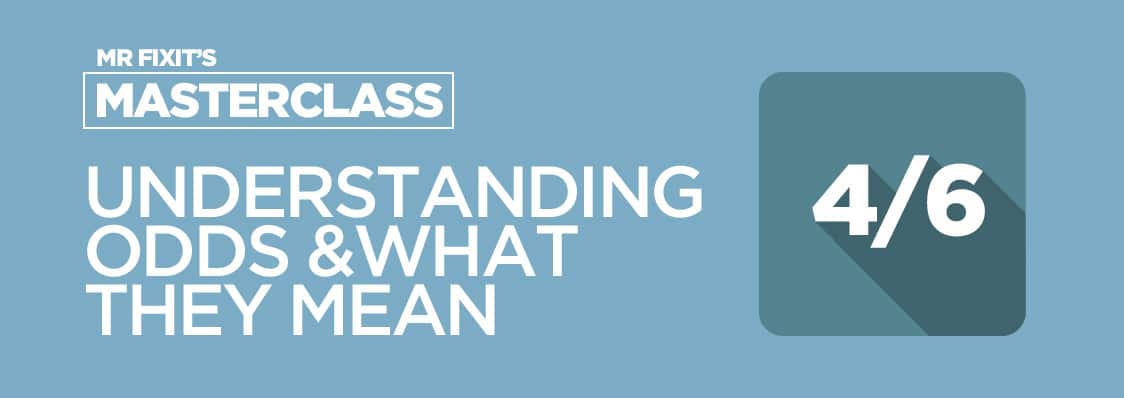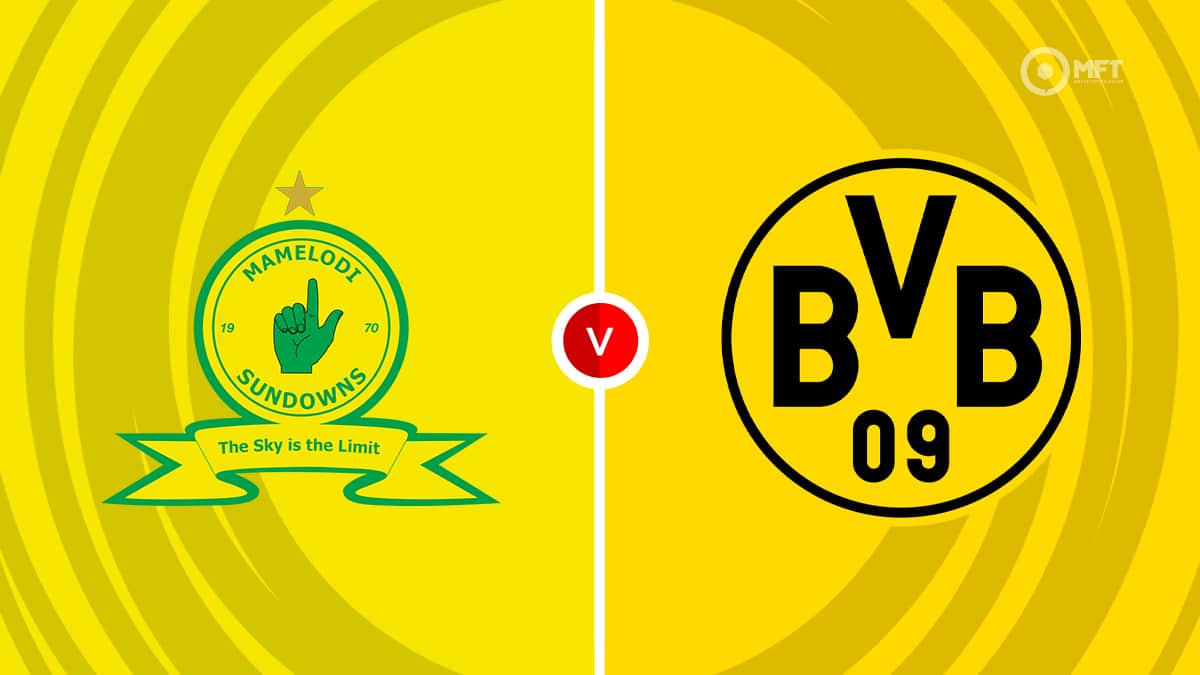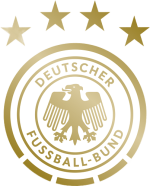Understanding how odds work is fundamental to being successful at betting on football, horse racing or any other sport.
Seasoned punters will find calculating odds to be their second nature, but for beginners, the prospect of getting to grips with what odds mean might seem a bit daunting at first. In particular, grappling with fractional odds can be the most daunting one for people from the UK.
Even if you're an experienced punter, this masterclass on understanding odds offers you the chance to refresh your thinking on identifying value based on the implied probability of odds.
With Royal Ascot coming up, it's important to remind yourself of the way the odds work, especially if you like betting on horse races. After all, the Royal Ascot festival is one of the biggest horse racing events in the country and betting on it can make it just a bit more fun.
Part 1: How do betting odds work?
When it comes to betting, understanding the odds is not merely a skill, it's an art. As highlighted earlier, odds play a crucial role in the betting industry, being the core of every bet. But how exactly do betting odds work?
Let's delve into this topic further and explore some key concepts, which can help you identify specific trends and find value where other people might miss it.
The basics of betting odds
At its core, betting odds are a representation of the likelihood of a particular event occurring. They serve as the core mechanism to calculate the potential profit from a bet and provide you with an implied probability of that particular bet, calculated by the bookies.
As mentioned earlier, odds come in various formats like fractional, decimal, and American, each serving the same purpose, but presenting it in a different way.
How bookmakers determine odds
Bookmakers are the ones who set the betting odds and they use sophisticated algorithms, data analysis, and even human intuition to determine odds, though the bookies don't rely on human intuition as much as they do on stats. Still, they assess all variables and factors that could influence an event and set the odds accordingly.
- Market analysis: Studying the betting trends in the market, bookmakers evaluate how people are betting and adjust the odds to balance their books based on the activity on the market at any time.
- Data and statistics: Information such as player form, head-to-head statistics, weather conditions, and more are used to make an informed decision on the odds.
- Profit margin: Bookmakers will often include an overround or vig, which is a margin built into the odds to ensure they make a profit regardless of the outcome.
Odds formats – Difference between fractional & decimal
Fractional odds
Traditionally, odds in the UK are expressed as a fraction. These odds can be used to calculate your net profit (excluding your stake), and although they seem complicated, the method of calculation is relatively straightforward.
This is best explained using an example. Let's say your bet is priced at 6/4 – in simple terms, that means you need to stake £4 to win £6 (plus you'd get your £4 stake back).
In terms of maths, another way to express 6/4 is six divided by four, which equals 1.5. So, whatever your stake is, you can multiply it by 1.5 to calculate your profit.
So far, so simple. But things do get a little bit trickier when the odds are something like 11/8. The numbers may be more difficult but the principle is the same; 11/8 is the same as 11 divided by eight which equals 1.375. Again, multiply this by your stake to calculate profit.
Decimal odds
Online punters are becoming more familiar with decimal odds, especially if they bet with bookies who have their origins in mainland Europe where they are more common. In fact, they're sometimes referred to as European odds.
In truth, they're much easier to work with than fractions, hence their growing popularity.
Instead of having to calculate from a fraction, the work is already done for you with decimal odds. Where decimal odds differ from fractional odds, however, is that your stake is built into the calculation.
Calculating profit with decimal odds
Simply multiply your stake by the decimal odds:
Sum: Profit = Stake × Odds − Stake
A £10 stake at 6.00 would give you a profit of £10×6−£10=£50.
Conversion chart for common odds
| Fraction | Decimal | American | Implied Probability |
|---|---|---|---|
| 1/5 | 1.20 | -500 | 83.3% |
| 2/9 | 1.22 | -450 | 81.8% |
| 1/4 | 1.25 | -400 | 80% |
| 2/7 | 1.29 | -350 | 77.8% |
| 3/10 | 1.30 | -333.3 | 76.9% |
| 1/3 | 1.33 | -300 | 75% |
| 4/11 | 1.36 | -275 | 73.3% |
| 2/5 | 1.40 | -250 | 71.40% |
| 4/9 | 1.44 | -225 | 69.2% |
| 1/2 | 1.5 | -200 | 66.7% |
| 8/15 | 1.53 | -188 | 65.2% |
| 4/7 | 1.57 | -175 | 63.6% |
| 8/13 | 1.62 | -162 | 61.9% |
| 4/6 | 1.67 | -150 | 60% |
| 8/11 | 1.73 | -137 | 57.9% |
| 4/5 | 1.80 | -125 | 55.6% |
| 5/6 | 1.83 | -120 | 54.5% |
| 10/11 | 1.45 | -220 | 68.8% |
| Evens | 2.00 | 100 | 50% |
| 11/10 | 2.10 | 110 | 47.6% |
| 6/5 | 2.20 | 120 | 45.5% |
| 5/4 | 2.25 | 125 | 44.4% |
| 11/8 | 2.38 | 138 | 42.1% |
| 7/5 | 2.40 | 140 | 41.7% |
| 6/4 | 2.50 | 150 | 40% |
| 8/5 | 2.60 | 160 | 38.5% |
| 13/8 | 2.63 | 163 | 38.1% |
| 7/4 | 2.75 | 175 | 36.4% |
| 9/5 | 2.80 | 180 | 35.7% |
| 15/8 | 2.88 | 188 | 34.8% |
| 2/1 | 3.00 | 200 | 33.3% |
| 11/5 | 3.20 | 220 | 31.3% |
| 9/4 | 3.25 | 225 | 30.8% |
| 12/5 | 3.40 | 240 | 29.4% |
| 5/2 | 3.50 | 250 | 28.6% |
| 13/5 | 3.50 | 250 | 28.6% |
| 11/4 | 3.75 | 275 | 26.7% |
| 3/1 | 4.00 | 300 | 25% |
| 10/3 | 4.33 | 333 | 23.1% |
| 7/2 | 4.50 | 350 | 22.2% |
| 4/1 | 5.00 | 400 | 20% |
| 9/2 | 5.50 | 450 | 18.2% |
| 5/1 | 6.00 | 500 | 16.7% |
| 11/2 | 6.50 | 550 | 15.4% |
| 6/1 | 7.00 | 600 | 14.3% |
| 13/2 | 7.50 | 650 | 13.3% |
| 7/1 | 8.00 | 700 | 12.5% |
| 15/2 | 8.50 | 750 | 11.8% |
| 8/1 | 9.00 | 800 | 11.1% |
| 17/2 | 9.50 | 850 | 10.5% |
| 9/1 | 10.00 | 900 | 10% |
| 10/1 | 11.00 | 1000 | 9.1% |
| 11/1 | 12.00 | 1100 | 8.3% |
| 12/1 | 13.00 | 1200 | 7.7% |
| 13/1 | 14.00 | 1300 | 7.1% |
| 14/1 | 15.00 | 1400 | 6.7% |
| 15/1 | 16.00 | 1500 | 6.3% |
| 16/1 | 17.00 | 1600 | 5.9% |
| 18/1 | 19.00 | 1800 | 5.3% |
| 20/1 | 21.00 | 2000 | 4.8% |
| 25/1 | 26.00 | 2500 | 3.8% |
| 33/1 | 34.00 | 3300 | 2.9% |
| 100/1 | 101.00 | 10000 | 1% |
More information on implied probability can be found in Part 2 of this guide.
Part 2: What do odds mean?
So now we understand the two most common ways of expressing odds, let's look at how odds are calculated and what they mean.
If we toss a coin there are two potential outcomes. If you were betting on the outcome of the coin toss, you'd expect odds of 1/1 (evens or 2.0) for either heads or tails. This means you would double your money if your bet wins.
The odds reflect the implied probability of an outcome. In this instance, there's a 50% chance, giving us odds of 1/1. Of course, in terms of betting, the bookies would decrease the odds to ensure they make a profit, so even at a 50% chance, the odds would in most cases be a bit lower, like 10/11 for both sides of the coin.
We can see this happening in sports where handicap betting is used, like basketball or American football.
Case study: The Foxes and the Pyramids
When it comes to setting odds for sports events, it's much more difficult, as there are so many other factors to consider. Finding discrepancies between the bookies' odds and your evaluation of the implied probability of an outcome is where you, the punter, can find value and beat the bookies.
To illustrate how difficult it can be to set the odds accurately, let's look at one of the most famous big wins in recent years, when Leicester City lifted the Premier League trophy in 2015/16.
The Foxes were an incredible 5000/1 to win the title at the start of the season. In probability terms, that means they would be expected to win the league once every 5,000 times it was played (assuming the same conditions at the start of each season).
Basically, the bookie's odds implied that Leicester City could play until the season 6014/15 and win the Premier League just once. Or to put it another way, had the Premier League begun when the Egyptians were scrawling hieroglyphics on the walls of the Pyramids, then the Foxes would just about have been due to win the title.
Part 3: Good decision making
Use implied probability to your advantage
So now we understand that betting odds express a probability or chance of an outcome occurring. With this knowledge, we can start to think about finding value in our bets by calculating the implied probability of an outcome.
This can be done quite simply. For example, we simply divide 100% by the odds. So, if your odds are say 2.50, the sum is 100% divided by 2.50 = 40%. This means that the odds imply there is a 40% chance of that particular outcome happening.
If you think there is a greater than 40% chance of the outcome happening then you have found yourself a value bet. If not, then you're best not placing a bet.
Four golden rules of sports betting
- Look for discrepancies between the bookmakers' odds and your evaluation of the implied probability of an outcome. If you believe the probability of a certain outcome is higher than the odds suggest, that may be a good opportunity to place a bet.
- Be aware of the different types of odds used in betting. Each type of odds has its own set of rules and calculations, so it's important to understand how they work before placing a bet.
- Use odds comparison websites to compare the odds offered by different bookmakers. This can help you find the best odds for your bet and increase your chances of winning. Odds aren’t the same everywhere. Each bookmaker offers its users different deals, which gives you, the bettor, a chance to monitor the situation and hunt for the top odds around to get the best bang for your buck.
- Don't be afraid to ask for help if you're not sure how to calculate the odds or understand the implied probability of an outcome. There are many resources online and in books that can assist you.
Always keep in mind that the bookmakers have a margin built into their odds, which means they're not always giving you the true probability of an outcome. Be aware of this and try to find value where the bookmakers' margin is lower.
Horse racing odds explained
The odds for horse racing work the same way as for any other sport, but there are some specifics that depend on the way you place your bets.
For example, bookmakers have fixed odds for all sports, which means that once you place your bets, the odds won't change for you even if they end up changing otherwise. That is an option for horse racing as well, but you can also go with a different kind of bet called parimutuel betting, which is better known as pool betting.
Pool betting allows you to place a bet against other bettors rather than the bookmaker itself. The bets don't come with fixed odds, but the odds are determined after the race once the total prize pool is divided by the number of winners.
For example, if the total sum of bets on a horse race was £10,000 and £2,500 of that was bet on the winning horse, then the payout would be £10,000 divided by £2,500, which equals £4 for every £1 bet on that horse, essentially giving each bettor 3/1 odds. Of course, the bookmaker will take their commission as well before paying the winners out.
Conclusion
Understanding odds is crucial for making informed betting decisions, especially when it comes to horse racing. Fractional odds, often used in the UK, and decimal odds, commonly used in Europe, may seem confusing at first, but they can be easily calculated with a bit of practice.
Before you make any rash betting decisions, do your homework and get a good grasp on how betting odds work. Thanks to this article, you should’ve gotten a good understanding of how they work, but in case you are still confused, don’t hesitate to come back here for a double check.
The odds represent the implied probability of an outcome and can be used to find value and beat the bookmakers. The general rule is that the higher and more tempting the odds, the lesser the chance that your bet will be a successful one. It all comes down to strategy – will you go for less impressive odds on markets that seem to be a sure thing, or will you opt for the daredevil move and risk it with a high-odds bet.
Both strategies can only be successful if you have a great understanding of odds and the implied probabilities behind them.
Still need help?
Check out some of our other beginners' guides to betting on horse races here, as well as our latest Royal Ascot 2025 articles in which you can find reliable information about the schedule, weather, and other important things, along with some useful betting tips for the entire festival and horse racing in general.






















































 GambleAware
GambleAware